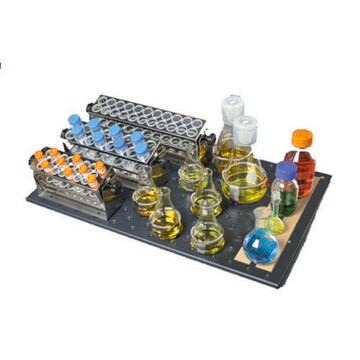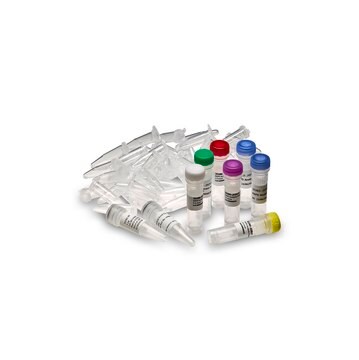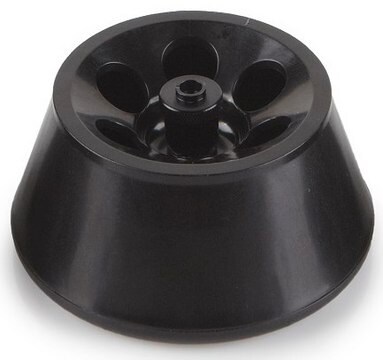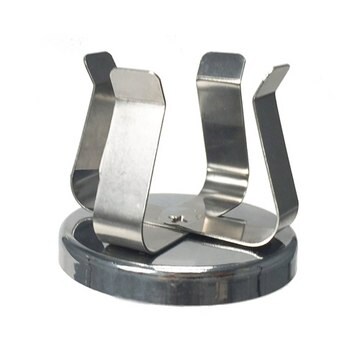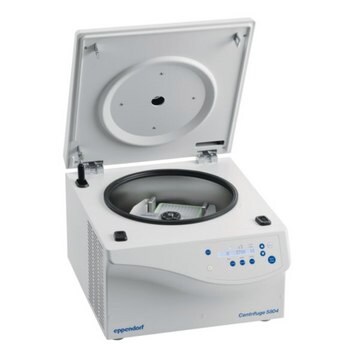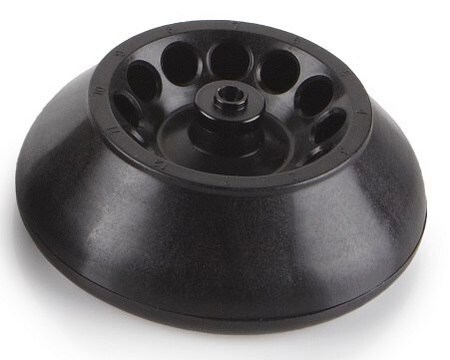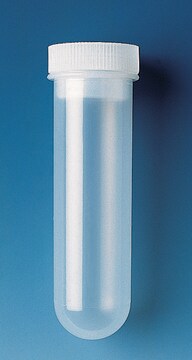GE27-9500-01
Ready-to-go™ RAPD Analysis Beads
Cytiva 27-9500-01, sufficient for 100 reactions
Iniciar sesiónpara Ver la Fijación de precios por contrato y de la organización
About This Item
Código UNSPSC:
55101520
NACRES:
NA.55
Productos recomendados
formulario
solid
uso
sufficient for 100 reactions
Características
hotstart: no
fabricante / nombre comercial
Cytiva 27-9500-01
color
Colorless
solubilidad
cold water: soluble (Soluble in cold water and hot water)
Descripción general
RAPD analysis is a technique for rapidly detecting genomic polymorphisms. A single short oligonucleotide primer of arbitrary sequence is used under low stringency conditions in PCR to generate a reproducible array of strain-specific products.
illustra™ Ready-To-Go™ RAPD Analysis Beads are designed as premixed , predispensed reactions for performing random amplified polymorphic DNA (RAPD) analysis. With RAPD analysis, genomic polymorphisms can be detected at multiple loci using only nanogram quantities of DNA. The RAPD reactions are provided as room-temperature-stable dried beads that contain all the necessary reagents, except primer, for performing RAPD analysis.
RAPD analysis is a technique for rapidly detecting genomic polymorphisms. A single, short oligonucleotide primer of arbitrary sequence is used under low stringency conditions in PCR to generate a reproducible array of strain-specific products that are analyzed by gel electrophoresis. Under these conditions, genomic polymorphisms can be detected at multiple loci using only nanogram quantities of DNA. RAPD analysis has been used in numerous applications, including gene mapping, detection of strain diversity, population analysis, epidemiology and the analysis of phylogenetic and taxonomic relationships (2).
The RAPD reactions are provided as dried beads that contain all the necessary PCR components, except primer, in concentrations optimized for RAPD analysis. Beads are provided in thin-walled 0.5 mL tubes compatible with most thermal cyclers. Each package of Ready-To-Go™ RAPD Analysis Beads contains sufficient reagents for 100 individual RAPD reactions: RAPD analysis beads, control E. coli BL21 DNA, control E. coli C1a DNA, RAPD analysis primer 2, and instruction booklet (DNA from two E. coli strains and RAPD analysis primer 2 are provided as controls to assay the ability of the RAPD beads to amplify DNA and identify polymorphisms).
illustra™ RAPD Analysis Kit consists of Ready-To-Go™ RAPD Analysis Beads and six primers that can be used with RAPD Analysis Beads. Each primer in the set is an arbitrary 10-mer that is specifically designed for use in RAPD analysis. The primers are supplied lyophilized and can be reconstituted with 500 μ of sterile distilled water to give a final concentration of 5 pmol/μ.
illustra™ Ready-To-Go™ RAPD Analysis Beads are designed as premixed , predispensed reactions for performing random amplified polymorphic DNA (RAPD) analysis. With RAPD analysis, genomic polymorphisms can be detected at multiple loci using only nanogram quantities of DNA. The RAPD reactions are provided as room-temperature-stable dried beads that contain all the necessary reagents, except primer, for performing RAPD analysis.
RAPD analysis is a technique for rapidly detecting genomic polymorphisms. A single, short oligonucleotide primer of arbitrary sequence is used under low stringency conditions in PCR to generate a reproducible array of strain-specific products that are analyzed by gel electrophoresis. Under these conditions, genomic polymorphisms can be detected at multiple loci using only nanogram quantities of DNA. RAPD analysis has been used in numerous applications, including gene mapping, detection of strain diversity, population analysis, epidemiology and the analysis of phylogenetic and taxonomic relationships (2).
The RAPD reactions are provided as dried beads that contain all the necessary PCR components, except primer, in concentrations optimized for RAPD analysis. Beads are provided in thin-walled 0.5 mL tubes compatible with most thermal cyclers. Each package of Ready-To-Go™ RAPD Analysis Beads contains sufficient reagents for 100 individual RAPD reactions: RAPD analysis beads, control E. coli BL21 DNA, control E. coli C1a DNA, RAPD analysis primer 2, and instruction booklet (DNA from two E. coli strains and RAPD analysis primer 2 are provided as controls to assay the ability of the RAPD beads to amplify DNA and identify polymorphisms).
illustra™ RAPD Analysis Kit consists of Ready-To-Go™ RAPD Analysis Beads and six primers that can be used with RAPD Analysis Beads. Each primer in the set is an arbitrary 10-mer that is specifically designed for use in RAPD analysis. The primers are supplied lyophilized and can be reconstituted with 500 μ of sterile distilled water to give a final concentration of 5 pmol/μ.
Características y beneficios
- For performing DNA profiling experiments using the randomly amplified polymorphic DNA [RAPD (1)] technique.
- Preformulated, predispensed, single-dose reaction beads are provided as ambient-temperature-stable beads to ensure greater reproducibility between reactions, minimize pipetting steps and reduce the potential for pipetting errors and contamination.
- RAPD* reactions are simple to perform—simply add genomic DNA solution and primer to a tube of RAPD Analysis Beads to a final reaction volume of 25 μ and cycle the reaction.
- Each lot of RAPD Analysis Beads is function-tested to ensure its ability to generate a differential banding pattern between the two control E. coli strains using RAPD Analysis Primer 2 included with the RAPD beads.
- RAPD reactions are pre-optimized for use with a wide variety of organisms.
Almacenamiento y estabilidad
Please be aware this product may be shipped 90 days before the expiration date. For more information on the batch specific expiration date, please contact technical service.
Nota de análisis
To view the Certificate of Analysis for this product, please visit www.cytiva.com.
Información legal
Ready-To-Go is a trademark of Cytiva
illustra is a trademark of Cytiva
Código de clase de almacenamiento
10 - Combustible liquids
Certificados de análisis (COA)
Busque Certificados de análisis (COA) introduciendo el número de lote del producto. Los números de lote se encuentran en la etiqueta del producto después de las palabras «Lot» o «Batch»
¿Ya tiene este producto?
Encuentre la documentación para los productos que ha comprado recientemente en la Biblioteca de documentos.
Nuestro equipo de científicos tiene experiencia en todas las áreas de investigación: Ciencias de la vida, Ciencia de los materiales, Síntesis química, Cromatografía, Analítica y muchas otras.
Póngase en contacto con el Servicio técnico